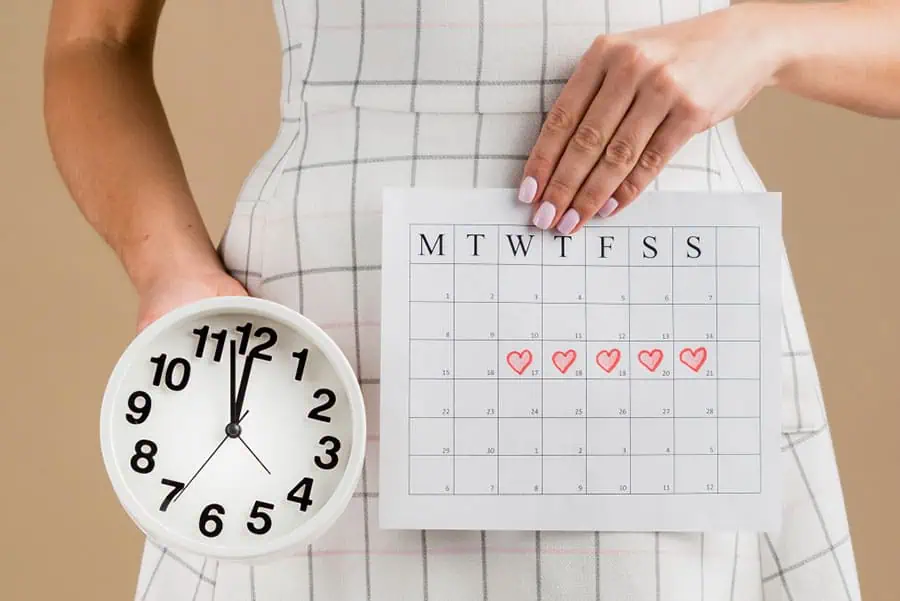Can You Get Pregnant Without Ovulating? Understanding Fertility Facts

When it comes to conception, many people find themselves puzzled by the intricate details of ovulation and its role in pregnancy. At All-Inclusive Preventive Care, we understand how crucial it is to grasp these concepts for effective family planning and female reproductive health. The key question often asked is: Can you get pregnant without ovulating? The short answer is no, you cannot. But the long answer is a little more complicated than that. Let's examine why ovulation is essential for pregnancy and what you need to know about your fertility.
Understanding the Menstrual Cycle
The menstrual cycle is a monthly process that prepares the female body for pregnancy and is a critical function of the female reproductive system. It typically lasts about 28 days but can vary from 21 to 35 days. The cycle has four main phases:
- Menstruation: The shedding of the uterine lining, resulting in a 'period', usually lasting from three to seven days.
- Follicular Phase: Starting on the first day of menstruation, the body begins preparing an egg for ovulation as hormone levels rise.
- Ovulation: Ovulation occurs around the middle of the cycle when the ovaries release a mature egg into the fallopian tube, making this the most fertile window in your cycle.
- Luteal Phase: After ovulation, the body prepares the lining of the uterus for a potential pregnancy. If fertilization doesn’t occur, hormone levels drop, leading to menstruation, and the cycle begins again.
This cycle is controlled by a delicate balance of hormones, and any disruptions can affect its regularity and your fertility.
What is Ovulation?
Ovulation is a crucial part of the menstrual cycle. It's when a mature egg is released from the ovary, making its way down the fallopian tube, where it might meet sperm and get fertilized. This process typically occurs around the middle of your cycle, though the exact timing can vary.
During ovulation, your body is at its peak fertility, meaning this is the time when you’re most likely to get pregnant if you have unprotected sex. Without ovulation, there’s no egg for sperm to fertilize, which means pregnancy can’t occur.
If fertilization does occur, the body starts producing human chorionic gonadotropin (hCG), the hormone detected by a pregnancy test.
The Role of Hormones in Ovulation
Your hormones play a major role in controlling ovulation. The two main hormones are luteinizing hormone (LH) and follicle-stimulating hormone (FSH). These hormones work in tandem to prepare your body for ovulation by triggering the release of an egg from the ovaries.
When something disrupts this hormonal balance, ovulation might not occur. Conditions like polycystic ovary syndrome (PCOS), stress, extreme weight loss, or even certain medications can interfere with ovulation, making it difficult or impossible to conceive.
Why You Can't Get Pregnant Without Ovulating
The simple reason you can’t get pregnant without ovulating is that there's no egg available for fertilization. Sperm can survive in a woman's body for up to five days, but without an egg, they have nothing to fertilize.
Anovulation vs. Irregular Ovulation: Understanding the Difference
According to the Cleveland Clinic, anovulation is the medical term for when the ovary does not release an egg during a menstrual cycle. Having an anovulatory cycle is not uncommon and can happen occasionally even in women with regular cycles. In a truly anovulatory cycle, there is no egg to be fertilized, so pregnancy is impossible.
However, irregular ovulation means that ovulation occurs unpredictably, rather than on a regular schedule. If an egg is released then pregnancy is possible, whether you ovulate early or late compared to your normal cycle. Since irregular ovulation can occur even when you have a regular cycle, it is important not to rely solely on charting or cycle tracking when trying to avoid pregnancy.
Causes of Anovulation and Irregular Ovulation
Causes of anovulatory cycles or irregular ovulation can include:
- Hormonal imbalances: Issues with your thyroid, pituitary gland, or adrenal glands can disrupt hormone production.
- PCOS: One of the most common causes of anovulation, PCOS is a condition characterized by multiple cysts on the ovaries and hormonal imbalance.
- Stress: Chronic stress can affect your hypothalamus, the part of your brain that regulates hormones needed for ovulation.
- Weight issues: Having a body mass index (BMI) that is too high or too low can lead to anovulation due to hormonal disruptions.
- Excessive exercise: Extreme physical activity, especially when paired with low body weight, can sometimes interfere with your body’s hormonal balance, leading to anovulation.
Can You Still Have a Period Without Ovulating?
Yes, you can still menstruate without ovulating, although it may appear to be a light period. This type of bleeding, often called "anovulatory bleeding," can occur when your body’s hormones aren’t cycling in a normal pattern, but the uterine lining still sheds.
This type of bleeding does not mean that you’ve ovulated. It’s just your body’s response to hormonal fluctuations at the end of your menstrual cycle. Learn more about this in our blog Can You Ovulate Without Having a Period?
How to Tell If You're Ovulating
Whether you are trying to conceive or trying to prevent pregnancy, tracking ovulation is key. There are several ways to tell if you’re ovulating:
- Ovulation Predictor Kits (OPKs): These kits test for a surge in LH, which happens right before ovulation.
- Basal Body Temperature (BBT) Charting: Your body temperature slightly increases after ovulation. Tracking this over time can help you identify when you ovulate.
- Cervical Mucus Monitoring: Around ovulation, your cervical mucus becomes clearer, stretchier, and more like raw egg whites.
- Ultrasound or Blood Tests: For those with irregular cycles or difficulty conceiving, a doctor can use these methods to confirm ovulation.

What If You’re Not Ovulating and Want to Get Pregnant?
If you have irregular menstrual cycles or you're not ovulating regularly and want to get pregnant, it’s important to consult with a healthcare provider. At All-Inclusive Preventive Care we can help diagnose the cause and discuss how to treat anovulation based on your individual needs. Treatments might include lifestyle changes, medication to induce ovulation, or assisted reproductive technologies like in vitro fertilization (IVF).
FAQs
Q: Can stress cause you to stop ovulating?
A: Yes, chronic stress can interfere with the hormones that regulate when an egg is released, potentially leading to anovulation. Stress can disrupt the production of the hormone progesterone and other hormones necessary for regular periods and fertility.
Q: Can you ovulate without having a period?
A: It’s possible to ovulate without a regular period, especially if you have an irregular cycle. However, it’s rare and usually indicates a hormonal imbalance. In such cases, vaginal discharge resembling raw egg white can sometimes indicate the fertile window.
Q: How do I know if I’m not ovulating?
A: If you have irregular periods, very light or heavy bleeding, or difficulty getting pregnant, it could be a sign of anovulation. Consulting with a doctor and tracking when you ovulate can provide useful insights. Methods like tracking vaginal discharge, using fertility awareness-based methods, or checking for a slight increase in basal body temperature can help. Peer-reviewed studies and guidance from a fertility specialist can also be valuable.
Q: Can you get pregnant on birth control?
A: Yes. The effectiveness of birth control depends on the method, but even with a high effectiveness rate, it is still possible to get pregnant while on birth control. But don't worry, when used correctly - chances of this happening are relatively low. Only about 9 out of 100 women will become pregnant on the pill with typical use. Other methods like intrauterine devices (IUDs), birth control injections, and implants are 99% effective with perfect use. Certain medications, like antibiotics, can impact their effectiveness.
Q: Can you get pregnant if you have irregular periods?
A: Yes, it is possible to get pregnant even if your menstrual cycle is irregular. Irregular menstrual cycles can make it more challenging to predict ovulation, which is the time when you're most fertile, but it doesn't prevent ovulation from occurring altogether. Using fertility awareness-based methods and tracking cycle length can help predict your fertile days.
Can You Get Pregnant Without Ovulation: Wrapping It Up
So, can you get pregnant without ovulating? In short, no. Ovulation is essential for conception because it provides the egg that sperm need to fertilize. Understanding your ovulation cycle and addressing any issues with it is crucial if you're trying to conceive. If you’re concerned about your fertility, don’t hesitate to reach out to a healthcare provider for guidance.
For personalized care and expert advice on women's health issues, contact All-Inclusive Preventive Care at (305) 200-3141 or email us at info@allinclusive.care. Our experienced team is here to help you with any questions or concerns you may have.
